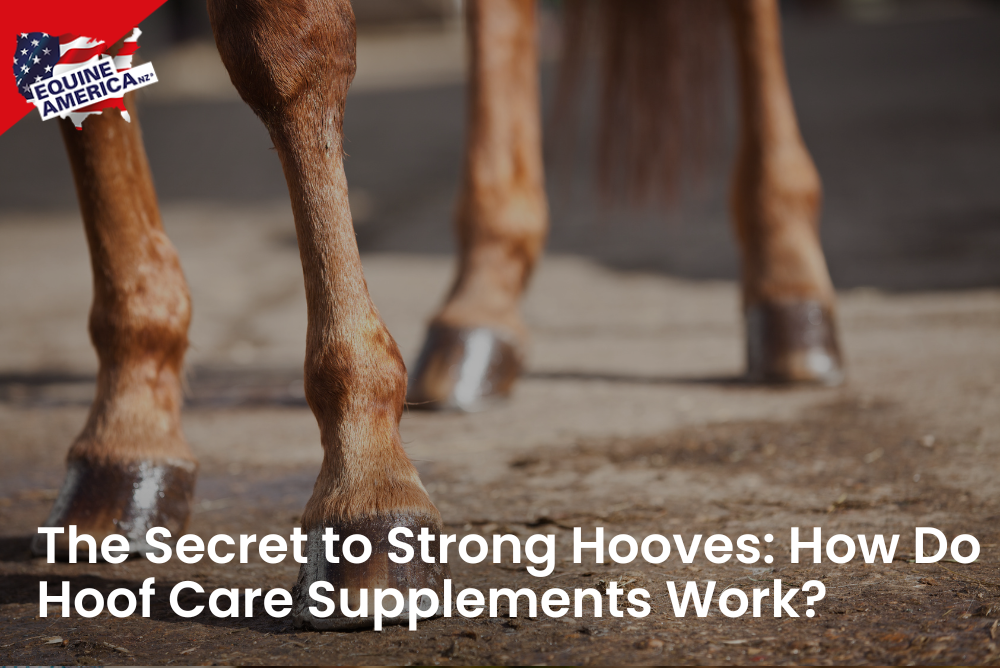To ensure your horse's general wellbeing and performance, you must take care of their respiratory system through methods like respiratory supplements. The lungs are a vital component of the equine body and are responsible for delivering oxygen to the bloodstream, which is essential for muscle function and energy production. Horses' ability to perform athletically and their susceptibility to respiratory conditions like allergies, infections, and inflammation. This article will go over five easy ways to maintain a horse's healthy lungs so they can breathe easily and thrive.
Tip 1: Good Ventilation
For optimal equine respiratory health, it's essential to make sure that your horse's stable is well ventilated. A buildup of dust, mold, and ammonia, which can irritate your horse's respiratory system and result in serious health issues, can be brought on by poor air circulation. Additionally, stale air can hold dangerous gases like carbon monoxide, which can harm your horse's lungs.
Make certain that your horse's stable has enough windows, vents, and fans to allow for adequate fresh air circulation. Additionally, you should regularly clean the stable to get rid of any dust or debris that may have gathered. By enabling your horse to move around freely and breathe clean air, giving them regular turnout time in a well-ventilated paddock or pasture can also help to improve lung health.
Tip 2: Regular Exercise
Horses' lung health should be maintained by regular exercise. Exercise increases lung and airway strength and flexibility, which can lower the risk of respiratory infections and diseases. Exercise causes horses to breathe more quickly and deeply, which aids in clearing any mucus or other debris from their airways.
To avoid overexertion, which can put additional strain on the lungs and airways, it is crucial to gradually increase the intensity and duration of exercise. Additionally, it's crucial to keep an eye on your horse's breathing both during and after exercise to make sure they are not in any respiratory distress.
Besides regular exercise, giving your horse plenty of turnout time can also be good for their lungs. Turnout enables horses to move around freely and breathe clean air, lowering the possibility of respiratory issues. However, it might be necessary to restrict your horse's turnout time during specific seasons of the year when allergens are present in the air if they have a history of respiratory problems or allergies.
Tip 3: Prevent Dust And Allergens
Dust and allergens can have a serious impact on your horse's lungs, especially if they already have a condition like asthma. There are several steps you can take to prevent the accumulation of dust and allergens in your horse's environment:
- Keep the stable clean: Regularly clean the stable to remove any dust or dirt buildup. Use a damp cloth to wipe down surfaces and avoid using dry sweeping methods.
- Use dust-free bedding: Consider using bedding that is free from dust, such as shavings or paper-based products.
- Avoid dusty hay: When selecting hay for your horse, try to choose hay that is free from dust and mould.
- Soak hay: If you cannot find dust-free hay, soaking it in water for 10-20 minutes before feeding can help reduce the amount of dust.
- Keep the environment clean: Try to keep the surrounding environment clean by avoiding dusty arenas and keeping your horse away from construction areas or other potential sources of dust.

Tip 4: Monitor Respiratory Health
It is important to regularly monitor your horse's respiratory health to ensure its lungs are functioning properly. This includes checking for any abnormal breathing patterns or sounds, as well as any discharge from the nose or coughing.
One way to monitor your horse's respiratory health is by regularly taking their temperature and monitoring their heart rate. An elevated temperature or heart rate may be a sign of respiratory distress.
In addition, regular check-ups with a veterinarian can help detect any respiratory issues early on and prevent them from becoming more serious. Your vet may recommend additional tests or treatments if they suspect a respiratory issue.
Finally, it is important to be aware of any environmental factors that may contribute to respiratory issues, such as poor air quality or exposure to irritants. Take steps to address these factors, such as improving ventilation or using dust-free bedding, to help prevent respiratory issues from arising in the first place.
Tip 5: Proper Nutrition
Proper nutrition plays a vital role in maintaining the health of your horse's lungs. Providing a balanced diet with the right nutrients can help to support their immune system and overall respiratory health.
Hay and pasture are essential sources of nutrition for horses, but it's important to ensure that they are free from dust, mould, and other harmful contaminants. If your horse is prone to respiratory issues, you may want to consider soaking their hay to reduce dust and allergens.
Supplements such as vitamin E, vitamin C, and omega-3 fatty acids have been shown to support lung health in horses. However, it's essential to consult with your veterinarian before adding any supplements to your horse's diet.
In addition to proper nutrition, it's important to ensure that your horse always has access to clean and fresh water. Staying hydrated helps to keep the mucous membranes in the respiratory tract moist and functioning properly.
By providing your horse with a balanced diet and monitoring their water intake, you can help to keep their lungs healthy and reduce the risk of respiratory issues.
Final Thoughts
Maintaining healthy lungs is crucial for your horse's overall well-being and performance. By following the tips outlined in this article, you can help keep your horse's lungs healthy and prevent respiratory issues. In addition to these tips, consider incorporating Equine America NZ's range of respiratory supplements into your horse's daily routine. With high-quality ingredients and proven results, these supplements can help support respiratory function and keep your horse breathing easily. Take the first step towards better respiratory health for your horse today.
Please give us a call at Equine America NZ today at 0800 440 888 to learn more or leave an enquiry.




